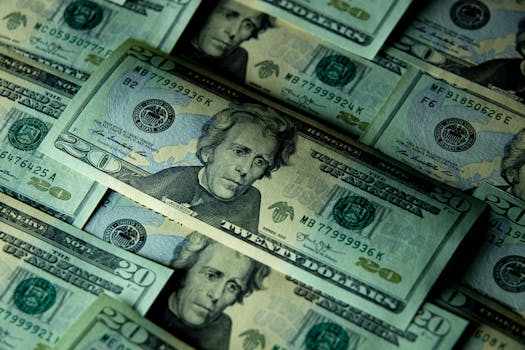Companies with the best and the worst fundamentals.
Lists of companies in NSE500 with the best and the worst fundamentals...
Lists of companies in NSE500 with the best and the worst fundamentals...
List of the latest important filings for NSE500....
Lists of companies in NSE500 with the best and the worst technicals...

The article examines the challenges faced by the Federal Reserve when critical...

The article examines the profound effects of the U.S. government shutdown on...

The article discusses the recent rise in safe-haven assets, including the all-time...

The upcoming earnings season is poised to offer key insights into how major corporations are navigating the turbulent macroeconomic landscape. In an environment characterized by increasing interest rates, fluctuating consumer sentiment, and mixed labor market indicators, investors are eager to see whether companies can meet or even exceed expectations. With heavyweights like PepsiCo, Delta Air Lines, and Levi Strauss set to report their third-quarter earnings, the stakes are high.
The backdrop against which these earnings are unfolding reveals a complex economic scenario. As of August 2025, the Consumer Price Index (CPI) for All Urban Consumers stands at 323.364, a slight increase from the previous months. This reflects ongoing inflationary pressures, which, despite some easing, continue to impact consumer purchasing power.
Additionally, the Labor Force Participation Rate has shown minor fluctuations, recently recorded at 62.3%, up from 62.2% in July. These labor market dynamics could influence consumer spending, a critical driver of corporate revenues.
Moreover, the unemployment rate as of early August 2025 is at 4.3%, slightly up from 4.2% in July. This moderate rise reflects ongoing transitions in the labor market, potentially altering the consumer spending landscape. All these factors complicate the predictions surrounding company performance during the earnings calls.
As one of the largest food and beverage companies globally, PepsiCo's upcoming earnings call will likely focus on how well it has adjusted its product offerings in response to changing consumer preferences. Analysts expect that the company's ability to innovate, particularly in healthier product segments, will be a critical factor in its performance. Last quarter, PepsiCo reported revenue of $22.32 billion, and this year's projections are cautiously optimistic despite ongoing inflationary pressures.
Delta's performance will be scrutinized for signs of recovery in the travel sector, which has been slow to rebound amid economic uncertainty. The airline, which reported a strong second quarter with revenues of $15.43 billion, faces challenges such as rising fuel prices and changes in consumer travel behavior. With crude oil prices hovering around $66.87 as of late September 2025, any fluctuations could significantly impact Delta’s profit margins going into Q3.
In the retail sector, Levi Strauss represents an interesting case study. Known for its durability and brand heritage, the company will reveal insights into how apparel demand is being affected by macroeconomic trends. Analysts expect that Levi's focus on sustainability and e-commerce adaptation will play a significant role in its earnings, as the company aims to capture a digitally-savvy consumer base. Its revenue from the last quarter was $1.49 billion, but growth could be impacted by lower consumer sentiment, which recently dropped to 58.2.
For investors, the upcoming earnings reports will anchor market expectations, impacting stock prices across sectors. Analysts indicate that companies that can demonstrate resilience and innovative strategies despite economic headwinds will likely see stock price appreciation. Conversely, those falling short may face harsh sell-offs.
Currently, corporate earnings are being juxtaposed against rising treasury rates, with the 30-Year Treasury Constant Maturity Rate at 4.69% and the 1-Year Treasury Constant Maturity Rate at 3.62%. These rising rates reflect tighter monetary policy, which influences borrowing costs for businesses.
The leeway companies have in this environment is shrinking. In the face of average commercial and industrial loans reaching approximately $2.685 trillion in August 2025, businesses are grappling with increased costs of capital. This scenario challenges companies to strategically manage cash flows while maintaining investment in growth opportunities.
As such, businesses are expected to focus on optimizing existing models, enhancing operational efficiencies, and seeking new revenue streams. Companies with robust digital infrastructures may have a competitive edge, making adaptability a key focus of the upcoming earnings calls.
Consumer sentiment continues to be an essential barometer for corporate performance, as recent data reveals a decline in the University of Michigan's Consumer Sentiment index from 61.7 to 58.2. This shift indicates growing consumer caution, which companies must navigate carefully to sustain revenue growth.
Successful companies in this earnings season will likely highlight data-driven strategies aimed at alleviating consumer concerns over spending and purchasing decisions.
As the earnings season approaches, companies are positioned in a complex environment filled with both opportunities and challenges. Major players like Pepsi, Delta, and Levi are set to reveal more than just financial figures; they will provide a glimpse into how businesses can adapt and potentially thrive amidst economic uncertainty. Stakeholders are keenly awaiting these reports, as they could serve as critical indicators for market trends in the upcoming months.

An analysis of the U.S. stock market's record highs in light of...

A comprehensive analysis of the current trends in China's housing market, highlighting...